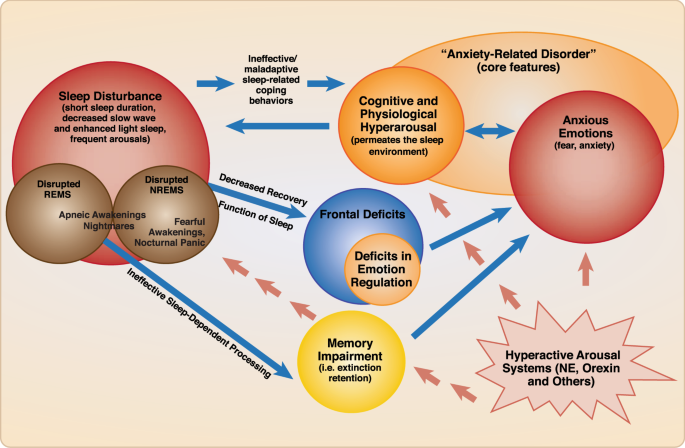Sleep Apnea And Ptsd Scholarly Articles
apnea articles scholarlyA growing body of evidence supports a bidirectional relationship between posttraumatic stress disorder PTSD and sleep disturbances. Study finds high risk of sleep apnea in young veterans with PTSD.

Sleep Disturbance In Ptsd And Other Anxiety Related Disorders An Updated Review Of Clinical Features Physiological Characteristics And Psychological And Neurobiological Mechanisms Neuropsychopharmacology
In relation to sleep apnea and PTSD there are plenty of research articles out there connecting them.

Sleep apnea and ptsd scholarly articles. Post-traumatic stress disorder PTSD and sleep apnea have been linked by a number of clinical studies. A high comorbidity burden worsens prognosis but some data suggest that CPAP might be protective especially in patients. This retrospective chart review study included all patients N 413 seen within a randomly selected 4-month.
1 For starters what exactly is PTSD. While its more common for the public to associate veterans disabilities with disfigurement amputations or chronic pain its important that vets their doctors and the general public take sleep apnea seriously. Relationship Between Sleep Apnea and PTSD Research shows that veterans with PTSD have a higher risk of developing sleep apnea.
I did a quick decision search for a phrase used in some of the prominent articles related to an arousal-based mechanism and it returned a large number of results where VBA found a favorable connection of sleep apnea secondary to PTSD. DARIEN IL A new study of young US. Veterans shows that the probability of having a high risk of obstructive sleep apnea OSA increased with increasing severity of post-traumatic stress disorder PTSD symptoms.
Obstructive sleep apnea syndrome OSAS was diagnosed in more than half of 200 active duty service members with combat-related post-traumatic stress disorder PTSD who were studied at Walter Reed Army Medical Center in Washington. Some research even suggests that consistent treatment of sleep apnea with CPAP can help ease PTSD symptoms like nightmares and anxiety among military veterans. To examine the correlations between obstructive sleep apnea OSA and psychiatric disorders such as major depressive disorder MDD posttraumatic stress disorder PTSD or bipolar disorder BD and whether comorbid psychiatric diagnosis increases the risk of OSA.
The study found that about 69 of veterans with PTSD are at a high risk for sleep apnea which is a sleep disorder causing a person to repeatedly stop and start breathing. There is also a direct correlation regarding the severity of the two conditions insofar as the more severe a veterans PTSD is the more severe their sleep apnea will be. Obstructive sleep apnea OSA is a highly prevalent disease and is traditionally associated with increased cardiovascular risk.
Its an established fact that stress could impact ones breathing mechanisms and such breathing problems during sleep may also trigger sleep deprivation. The research also showed that the risk for sleep apnea climbs for those with more severe PTSD. Studies have suggested that individuals afflicted by a post-traumatic anxiety disorder frequently suffer from sleep apnea or shallow breathing through the night.
The role of comorbidities in OSA patients has emerged recently and new conditions significantly associated with OSA are increasingly reported. Sleep apnea found in 57 of veterans with PTSD. The effect of continuous positive air pressure CPAP on nightmares in patients with posttraumatic stress disorder PTSD and obstructive sleep apnea OSA.
Journal of Clinical Sleep Medicine. Veterans with post-traumatic stress disorder PTSD the risk of sleep apnea increases along with the severity of the mental health condition a new study contends. Until recently it remained hard to explain why people with.
Fragmented sleep induced by sleep-related breathing disorders insomnia and nightmares impacts recovery and treatment outcomes and worsens PTSD symptoms. HealthDay News For US. Sleep apnea has been noted most often in PTSD both in studies on returning veterans as well as in woman who have suffered sexual trauma.
This correlation between the two becomes even stronger when the study determined that an increase in the severity of PTSD leads to an increase in the probability of sleep apnea. Despite recent attention management of these disorders has been unrewarding in the setting of PTSD.